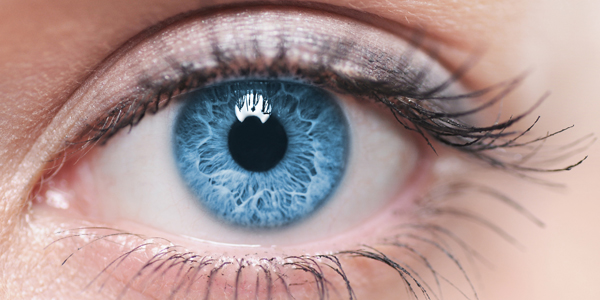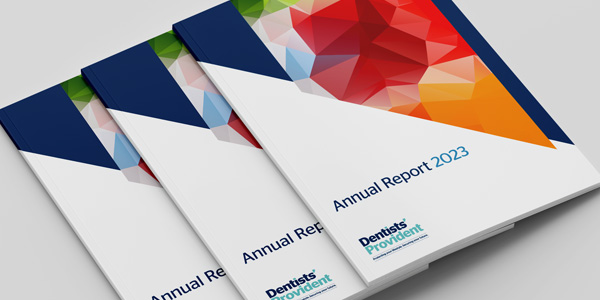
Protecting your eyes – and those of your team and patients – has a key part to play in the delivery of safe dental care. In this article, we focus on the future of eye care, looking at some of the new research into eye health.
The problems
The World Health Organization (WHO) estimates that 285 million people around the world have a kind of visual impairment, and of those, 39 million are blind. The WHO also state that ‘80% of all visual impairment can be prevented or cured.’
Oxford University physicist Joshua Silver, an expert in vision correction, leads the Centre for Vision in the Developing World, that was set up this year by a group of experts to study the clinical and practical issues that we face in helping people in the developing world correct their vision. Joshua hopes that by 2020 we will see a billion people benefiting from vision correction. In May this year, the New Scientist quoted the Centre that said that ‘by 2030 eyesight will be one of the world’s top 10 heath issues in terms of productivity and opportunities – taking a bigger economic toll than the HIV epidemic.’
It is estimated that 40 people lose their sight every day in the UK and yet, reports suggest, eye research still remains underfunded, with only 2% of medical research funding going into eye disease and loss of sight, even though research shows that sight is the sense people fear losing the most.
In 2014, Dentists’ Provident paid around £90,000 in claims for general eye conditions including cataract, conjunctivitis and retinal detachment.
A brief look ahead
The National Eye Research Centre, who funds research into the causes and treatments of eye disease, sight loss and blindness, states that ‘eye research is showing promising results through new techniques, such as stem cell research, inherited genetic disorders and in our understanding of inflammatory eye disease.’ Additionally, Optometry Today spotlights key clinical developments that are set to have an impact on the delivery of eye health. At the start of this year, they reflected on a number of highlights including a breakthrough stem cell trial for age-related macular degeneration (AMD) and pipeline treatment for glaucoma. They also reported that researchers at Manchester University ‘are pushing genomic screening for cataracts forward with next generation sequencing.’ And on the subject of genetic testing, they mentioned that patients have already been recruited for the 100,000 Genome Project; a government-funded project hoping to harness the science of genomics for the benefit of all NHS patients. If scientists can successfully develop the skill to spot disease early enough and halt its progression, then it is believed that the health of millions of patients could be greatly improved.
New solutions?
In May this year, the New Scientist presented a number of studies that show other ways to protect your eyes, or assist in improving poor eyesight, than just using corrective glasses. Three of these studies were:
There have also been studies to review the use of eye drops made from a patient’s own blood, which could help people with dry eyes (when tear glands cannot make enough tears, or produce poor quality tears). Those eye drops are believed to be a better tear substitute than normal eye drops, as they contain the antibodies and nutrients found in natural tears, but further trials are needed to establish whether they are completely safe and effective.
Personalised medicine
University College London’s Institute of Child Health describes personalised medicine as ‘the next generation of medicine and healthcare research with the potential to provide significant benefits to patients and effect strategic shifts in the way healthcare is delivered in the clinic. Personalised medicine uses an individual's genetic profile to guide decisions made in regard to the prevention, diagnosis, and treatment of a disease. Developing new diagnostic tests and expanding the use of biomarkers enabling the identification of the molecular cause of a disease will ultimately support the development of novel more precisely targeted treatments.’
Ophthalmology is one of the first disciplines to use the concept of personalised medicine, and one area of development is gene replacement therapies for some inherited types of eye diseases. It may also become a solution for the prediction, diagnosis and management of the complex eye disease AMD. A few years ago, the pharmaceutical industry reported that 70% of American and European primary care physicians, neurologists and cardiologists expected that personalised medicine would become routine in their clinical practice within five years.
Old wives’ tales
There are certain parental warnings that we may have been brought up on, such as playing computer games harms your eyes and staring at books makes you need glasses, but recent research actually puts pay to those.
Bruce Allan, a surgeon at Moorfields Eye Hospital undertook some research that showed that there is no real evidence that watching TV, using computers or reading in poor light is bad for your eyes, and this appears to be the case for video/computer games as well.
There is also very little evidence that eye exercises improve your eyes’ ability to focus, but there is emerging evidence that a type of ‘brain training’ that can help your brain interpret signals better from your eyes, can improve your vision, or at least your ability to detect contrasts. Some of the strongest evidence supporting this theory is from contrast sensitivity studies with ‘gamers’ by a neuroscientist in Switzerland.
It has often been thought that myopia (short sightedness), that has been found to be more common in people who are educated, is caused by time spent staring at books. However, more recent findings suggest it is not this close work alone that causes myopia. It is actually more likely to be because there is less time spent staring into the distance, as you would if you were outdoors more. Whether it is this, or the brightness or quality of outdoor light, these recent studies suggest that children who spend more time outdoors could avoid short-sightedness in the future.
Protection
Bryan Gross, head of claims and underwriting at Dentists’ Provident says “Good eyesight is obviously vital for a dentist, and it’s sad when members contact us with eye conditions that have the potential to recur; progressively deteriorate, or be irreversible, and therefore may affect their ability to practise in the future. I can think of a case when this happened to a dentist only in her 40s. So it’s important to remember to look after yourself, and have the health of your eyes checked regularly.”
People generally seem keen to keep up to date with new technology in order to correct their vision as easy and comfortably as possible, and who knows where the increasing new innovative solutions to improve our eyesight may go in the future. One American study that summarised the findings of annual surveys conducted over the last 12 years, showed that people have been quick to take up new contact lens designs for increased comfort and safety, as the lens materials and capabilities have improved over that time with daily disposables, silicon hydrogel materials and multifocal designs.
Whether it is researching and trialling new technology to correct any current sight problems; ensuring you, your team and your patients are protected during consultations; or booking your next check-up to review the health of your eyes, it remains vital to focus on the care of your eyes, to safeguard your ability to practise.
References available on request.
This article is intended for information only. It is not designed to give financial or medical advice, nor is it intended to make any recommendations of the suitability of our plans for a particular individual. Full details of our contract can be found in our rules on our website www.dentistsprovident.co.uk. Dentists’ Provident Society Limited does not accept liability and responsibility for changes made to this information. Some of the information in this article has been obtained from third parties. While we believe the information to be reliable; we make no representations as to its accuracy and accept no responsibility or liability for any error, omission or inaccuracy in the data supplied by any third party.
If you have any questions, please contact our member services consultants by emailing press@dentistsprovident.co.uk or calling 020 7400 5710.
If you have any questions, please contact our member services consultants by emailing
memberservices@dentistsprovident.co.uk or calling 020 7400 5710.

Our 2024 Annual General Meeting will be held at 91-94 Saffron Hill, London, EC1N 8QP on Friday 24th Ma…
Read more
The 2023 annual report from Dentists’ Provident, a leading income protection provider for dental profe…
Read more
Our next exhibition is the British Dental Conference & Dentistry Show in May, where we look forward to meeting anyone interested in becoming a member or members wanting to discuss their plans.